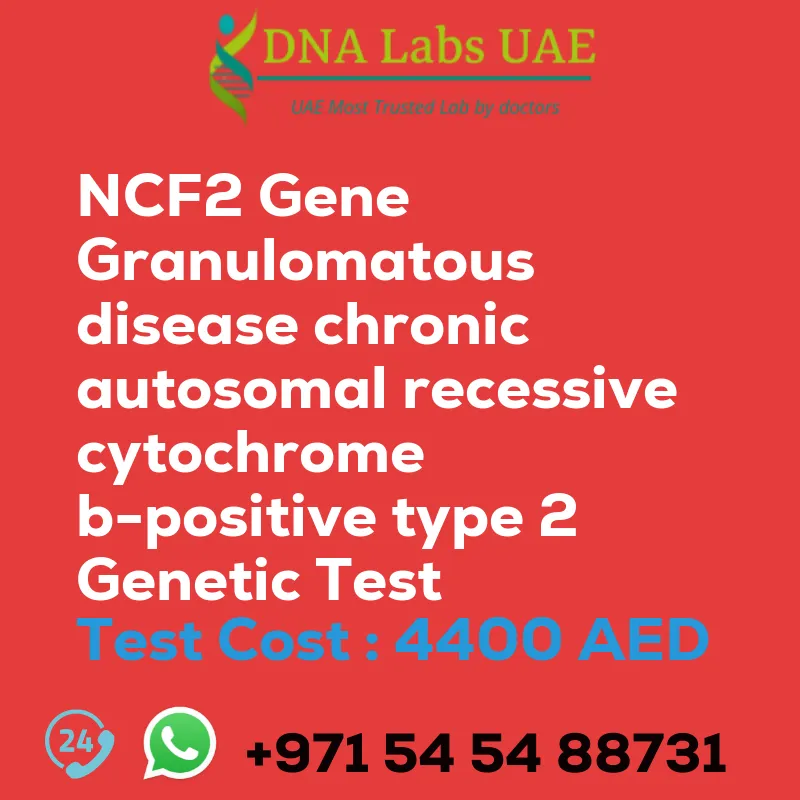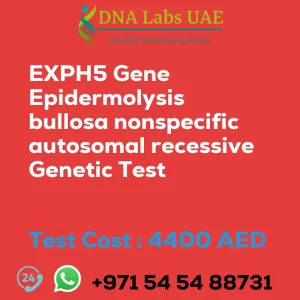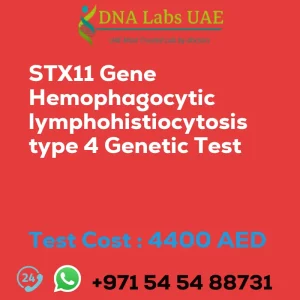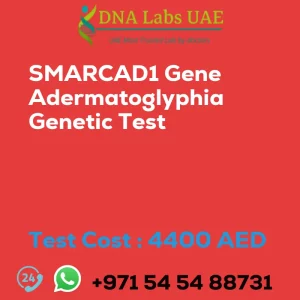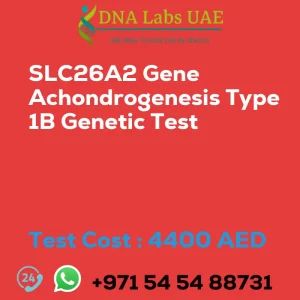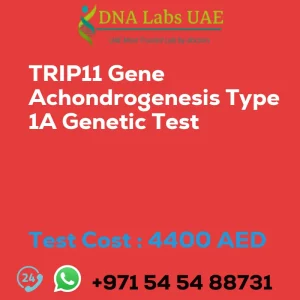NCF2 Gene Granulomatous Disease Chronic Autosomal Recessive Cytochrome b-positive Type 2 Genetic Test
At DNA Labs UAE, we offer the NCF2 Gene Granulomatous Disease Chronic Autosomal Recessive Cytochrome b-positive Type 2 Genetic Test. This test is designed to diagnose and provide important information for the treatment and management of this genetic disorder.
Test Components
Price: 4400.0 AED
Sample Condition: Blood or Extracted DNA or One drop Blood on FTA Card
Report Delivery: 3 to 4 Weeks
Method: NGS Technology
Test Type: Osteology Dermatology Immunology Disorders
Doctor: Dermatologist
Test Department: Genetics
Pre Test Information
Before undergoing the NCF2 Gene Granulomatous Disease Chronic Autosomal Recessive Cytochrome b-positive Type 2 Genetic Test, it is important to provide the clinical history of the patient. Additionally, a genetic counseling session will be conducted to draw a pedigree chart of family members affected with this genetic disorder.
Test Details
The NCF2 gene is associated with chronic granulomatous disease (CGD), an inherited immune system disorder characterized by recurrent infections and the formation of granulomas. CGD is caused by mutations in genes involved in the production of reactive oxygen species (ROS) by immune cells.
The NCF2 gene provides instructions for making a protein called p67phox, which is a subunit of the NADPH oxidase enzyme complex. This complex is responsible for producing ROS, which are crucial for the killing of bacteria and fungi by immune cells.
Mutations in the NCF2 gene can result in a deficiency or dysfunction of the p67phox protein, leading to a reduced ability of immune cells to produce ROS and effectively fight off infections.
CGD is inherited in an autosomal recessive manner, meaning that an individual must inherit two copies of the mutated gene (one from each parent) to develop the condition.
The cytochrome b-positive, type 2 NGS genetic test is a specific type of genetic test that can identify mutations in the NCF2 gene associated with CGD. This test utilizes next-generation sequencing (NGS) technology to analyze the DNA sequence of the NCF2 gene and detect any disease-causing mutations.
Treatment and Management
Once a diagnosis of CGD is confirmed through genetic testing, treatment typically involves antibiotic and antifungal medications to control infections. Additionally, other therapies may be utilized to boost the immune system’s ability to fight off infections.
By offering the NCF2 Gene Granulomatous Disease Chronic Autosomal Recessive Cytochrome b-positive Type 2 Genetic Test, DNA Labs UAE aims to provide accurate diagnosis and personalized treatment plans for individuals with this genetic disorder.
| Test Name | NCF2 Gene Granulomatous disease chronic autosomal recessive cytochrome b-positive type 2 Genetic Test |
|---|---|
| Components | |
| Price | 4400.0 AED |
| Sample Condition | Blood or Extracted DNA or One drop Blood on FTA Card |
| Report Delivery | 3 to 4 Weeks |
| Method | NGS Technology |
| Test type | Osteology Dermatology Immunology Disorders |
| Doctor | Dermatologist |
| Test Department: | Genetics |
| Pre Test Information | Clinical History of Patient who is going for NCF2 Gene Granulomatous disease, chronic, autosomal recessive, cytochrome b-positive, type 2 NGS Genetic DNA Test. A Genetic Counselling session to draw a pedigree chart of family members affected with NCF2 Gene Granulomatous disease, chronic, autosomal recessive, cytochrome b-positive, type 2 NGS Genetic DNA Test gene NCF2 |
| Test Details |
The NCF2 gene is associated with chronic granulomatous disease (CGD), which is an inherited immune system disorder characterized by recurrent infections and the formation of granulomas, which are clusters of immune cells that cause inflammation. CGD is caused by mutations in genes involved in the production of reactive oxygen species (ROS) by immune cells. The NCF2 gene provides instructions for making a protein called p67phox, which is a subunit of the NADPH oxidase enzyme complex. This enzyme complex is responsible for producing ROS, which are crucial for the killing of bacteria and fungi by immune cells. Mutations in the NCF2 gene can lead to a deficiency or dysfunction of the p67phox protein, resulting in a reduced ability of immune cells to produce ROS and effectively fight off infections. CGD is inherited in an autosomal recessive manner, meaning that an individual must inherit two copies of the mutated gene (one from each parent) to develop the condition. The cytochrome b-positive, type 2 NGS genetic test is a specific type of genetic test that can be used to identify mutations in the NCF2 gene associated with CGD. This test uses next-generation sequencing (NGS) technology to analyze the DNA sequence of the NCF2 gene and detect any disease-causing mutations. Identifying mutations in the NCF2 gene through genetic testing can help confirm a diagnosis of CGD and provide important information for treatment and management of the condition. Treatment for CGD typically involves antibiotic and antifungal medications to control infections, as well as other therapies to boost the immune system’s ability to fight off infections. |

